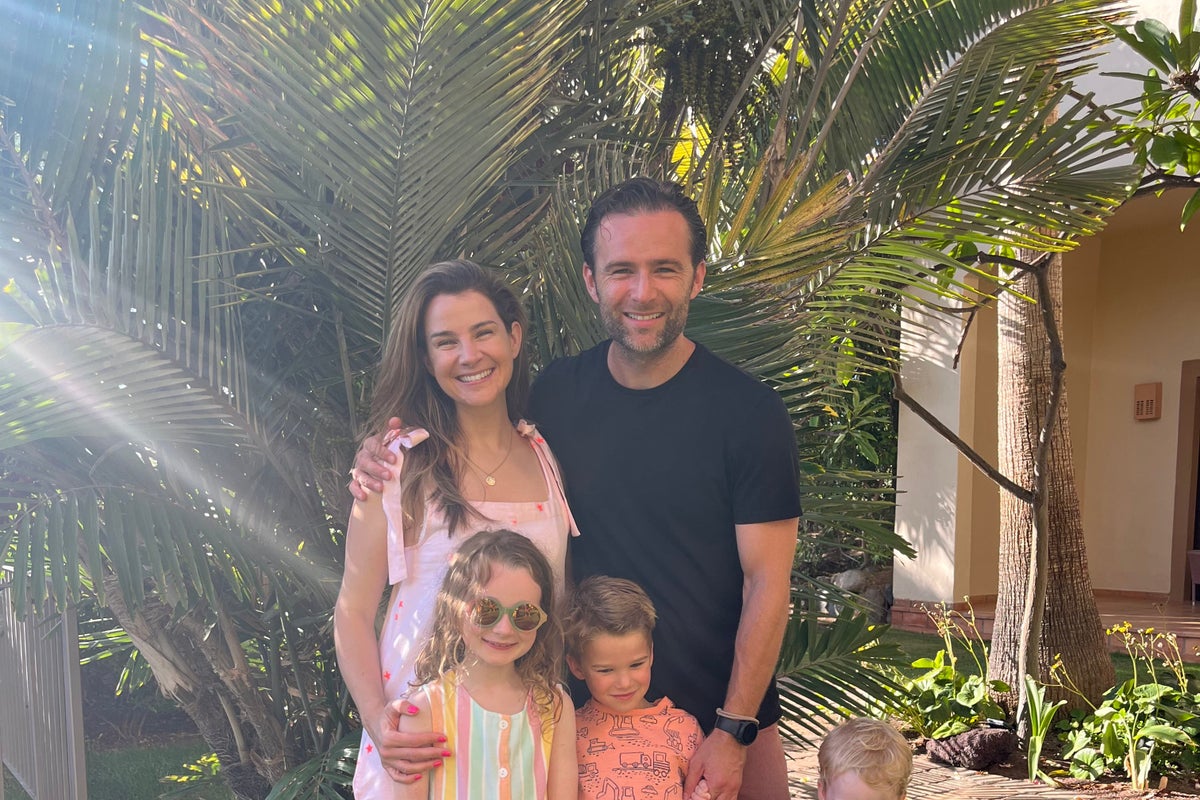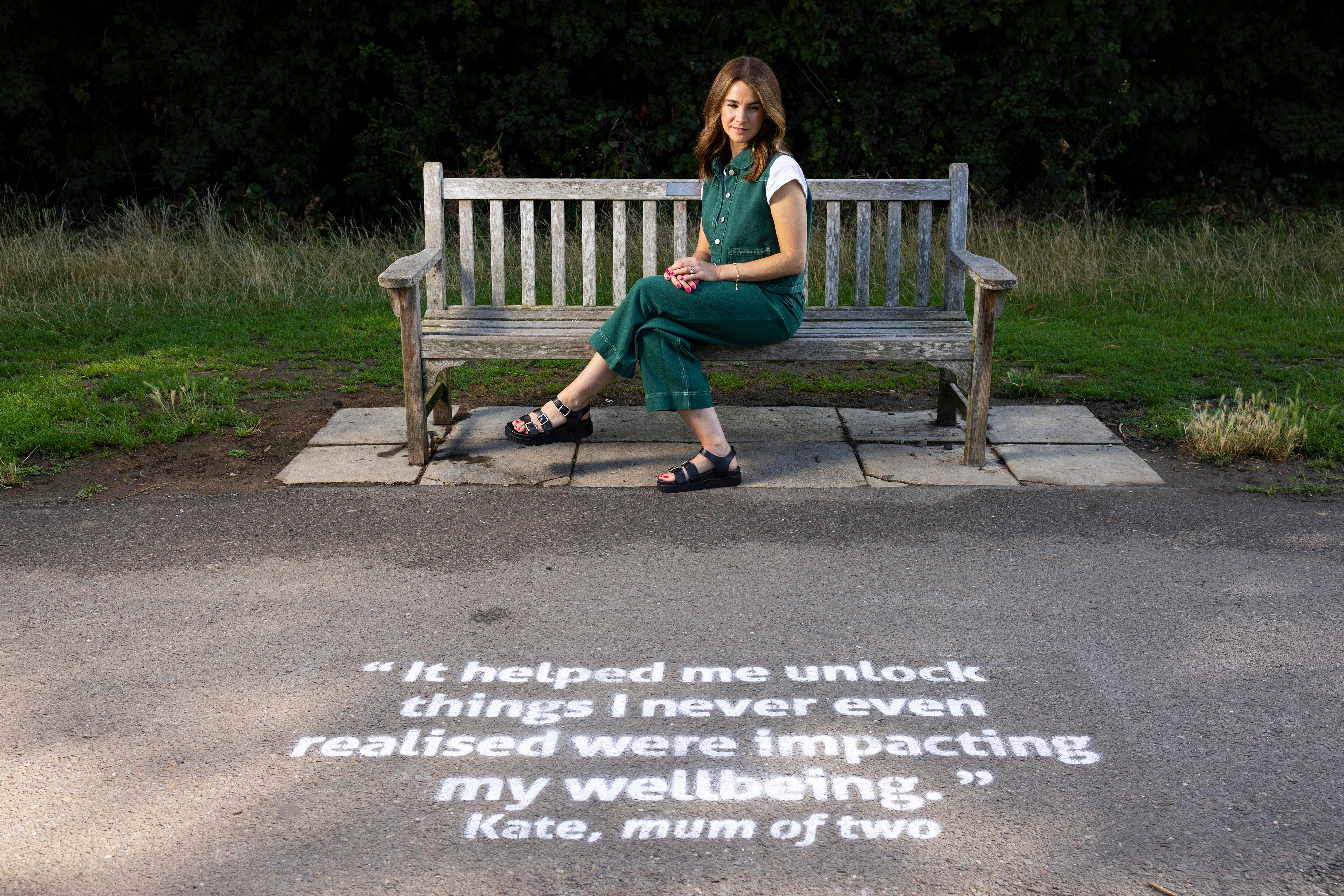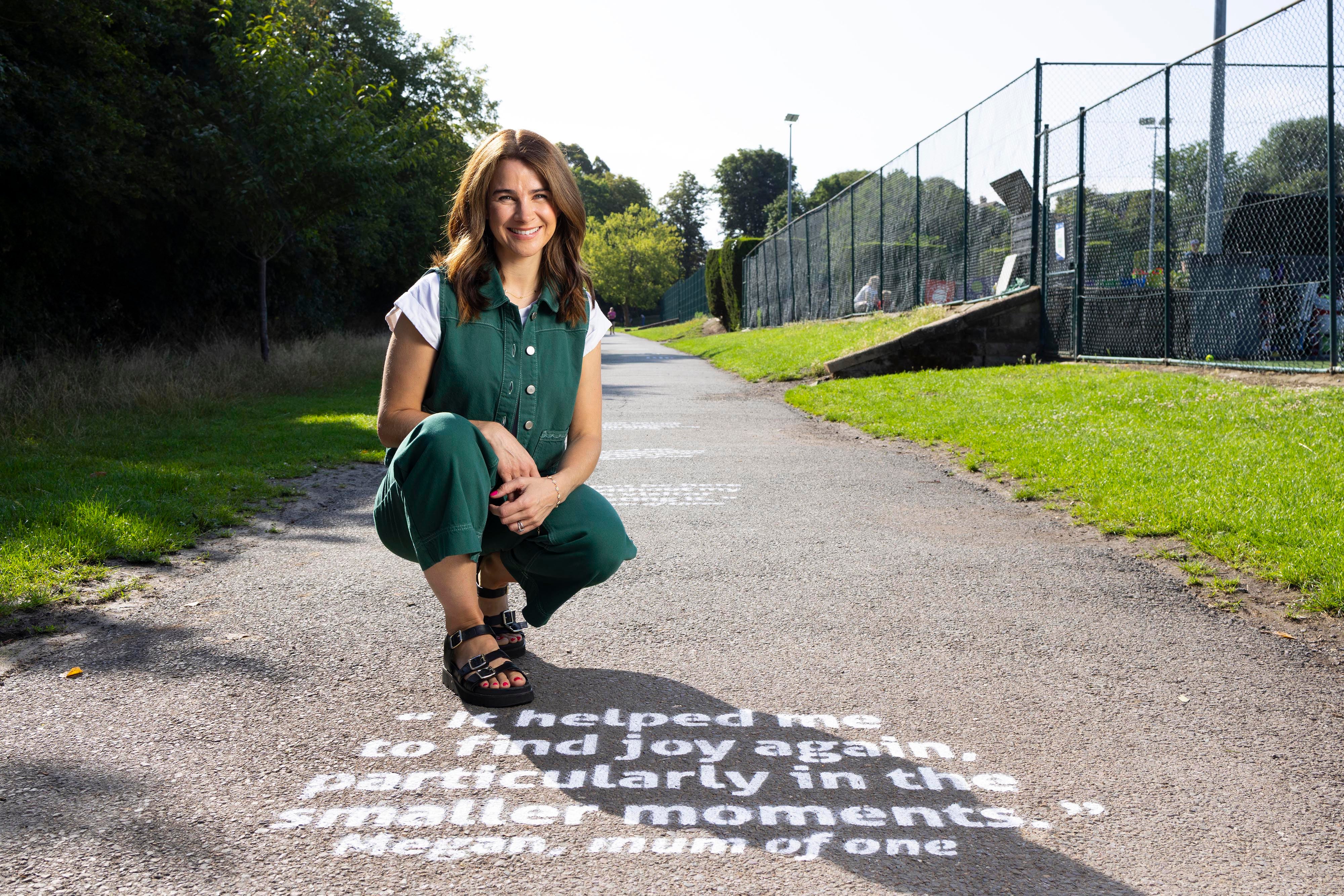
Izzy Judd has had therapy on and off for more than 20 years.
And the mum-of-three, who’s married to McFly drummer Harry Judd, is hoping that by talking candidly about how much she’s gained from therapy, she’ll encourage other mums – and particularly new ones – to seek therapy themselves if they have any problems, big or small.
Judd, 41, who’s a classically trained violinist and author, says: “New mums often face their struggles alone, and there’s a narrative that plays in our minds saying we should be able to cope.
“It feels like everyone else is coping, but actually more than half of new mums struggle with their mental wellbeing. The idea is to seek therapy and remove the stigma that therapy might suggest a feeling of failing, because actually, therapy is one of the kindest things you can do for your mental wellbeing as a mum.
“That’s something I’ve always felt – it can be transformative.”

She explains that her first experience of therapy was in her early 20s for anxiety, which she says was linked to her eldest brother Rupert having a serious car accident which left him with a severe brain injury.
“My family experienced a real trauma,” she recalls. “That was back in 1997 and no therapy was offered to us at that time. I would’ve really benefitted from being able to talk about that trauma.
“Resulting from that, I really struggled with anxiety. I’d always, as a child, had a bit of anxiety, and in my early 20s the anxiety got so overwhelming I had my first experience of therapy. As I’ve gone through life there have been different moments where I’ve just felt I needed that support.
“I think therapy is part of the puzzle, certainly for me. Medication is one part, but you need therapy to support.”
Judd, who had her first child Lola, now nine, through IVF and went on to conceive sons Kit, aged seven, and Lockie, three, naturally, says when she was a new mum what she really struggled with was leaving her home.
“I found it really, really difficult leaving the house – I felt safe at home, I could feed my baby, I could walk around in my pyjamas all day.
“I felt like the other people I’d met and made friends with at NCT all seemed to be coping a lot better. If I could speak to my new mum self it would have been just to say there really is no rush and you can be in this bubble as long as you need to be and it’s fine.”
Because it’s something she can really relate to, Judd is now supporting the new Positive Steps campaign by the British Association for Counselling and Psychotherapy (BACP), which aims to encourage new mums to think of therapy as self-care.

The campaign has been launched after BACP research found 69% of new mums think they’re bombarded with advice which adds to – rather than alleviates – the pressures of motherhood.
More than half of new mums questioned (51%) said they found it harder to cope with their mental wellbeing since having a baby, and 43% had considered having counselling for it, but hadn’t accessed it.
In addition, 66% of new parents say social media creates an overwhelming pressure to succeed, and Judd says: “With the rise of social media, there’s so much more comparison, and opinion and sometimes you can lose your way and not listen to your own intuition, which is more often than not the strongest voice to listen to.”
Of course new mums talking to their partners and family about any problems they may be facing is also vital, and Judd reveals that after she’s had therapy: “Harry and I always have a bit of a joke because he’ll say ‘I told you that!’.
“But I think there’s a place for both – there’s a place for making sure you have an open dialogue with the people around you, especially as a new mum where you can’t really express what you’re finding difficult.
“As new mums we’re really bad at asking for help – it doesn’t feel instinctive, because we want to look after and be able to do everything as part of our maternal instinct, but actually turning to your partner to ask for help is absolutely crucial.”
She says it can also be extremely useful to offload to a therapist too. “They’re trained experts,” she points out. “Sometimes people might think how is that person going to solve my problems, or I’m going to talk for an hour and just feel like I’ve opened up, but then what?
“But actually, it isn’t like that. It’s almost like a filing system where you can organise your thoughts and concerns in a clearer way, and the therapist is very good at guiding you through and making sure you’re getting the most from your sessions.
“Sometimes you just need the chance to offload, or to feel the emotions or to have a cry or a shout or whatever it might be.”
As well as talking to her husband and having therapy, another thing Judd swears by is mindfulness. She’s even written a book about it, Mindfulness for Mums, and says: “It’s summer holidays at the moment, so the juggle is very real, but I’m very aware of getting micro-moments, the glimmers in the day, whether it’s walking the dog, getting out and having a bit of head space – I love practising mindfulness, and I try and share that with my kids.
“If I don’t have the space in the day to get present, my brain loves to catastrophise and go into the future and start worrying, so I feel like I have to try and get present, and that’s where mindfulness has been a real rock, and something that’s really helped my kids as well – so much so that sometimes it backfires.”
She happily explains how, usually around the children’s bath time and teatime, “You’re so tired you just want somebody to feed you and put you to bed, and often I get het up and my daughter will say ‘Mummy, shall we take five deep breaths?’, because I do this thing on my hand where I trace the outline of my hand and take deep breaths.
“But I think that’s great because she’s got that tool, though when she says it to me I’m like ‘Ohhh!’.”
Judd says she feels “lucky and in a privileged position” to be able to seek therapy. and acknowledges that it can be expensive. But she points out that the BACP is working with The Mum Club and MumsAid as part of the campaign to help new mums access therapy, and she adds: “We’ve got to stop thinking of therapy as something which is an indulgence or a failing, and start looking at it as something that can really support you through the toughest periods of your life.”
Izzy Judd is supporting the British Association for Counselling and Psychotherapy (BACP)’s Positive Steps campaign to encourage new mums to think of therapy as self-care.







